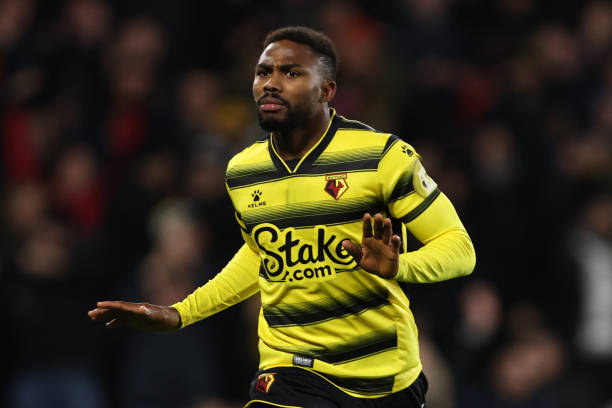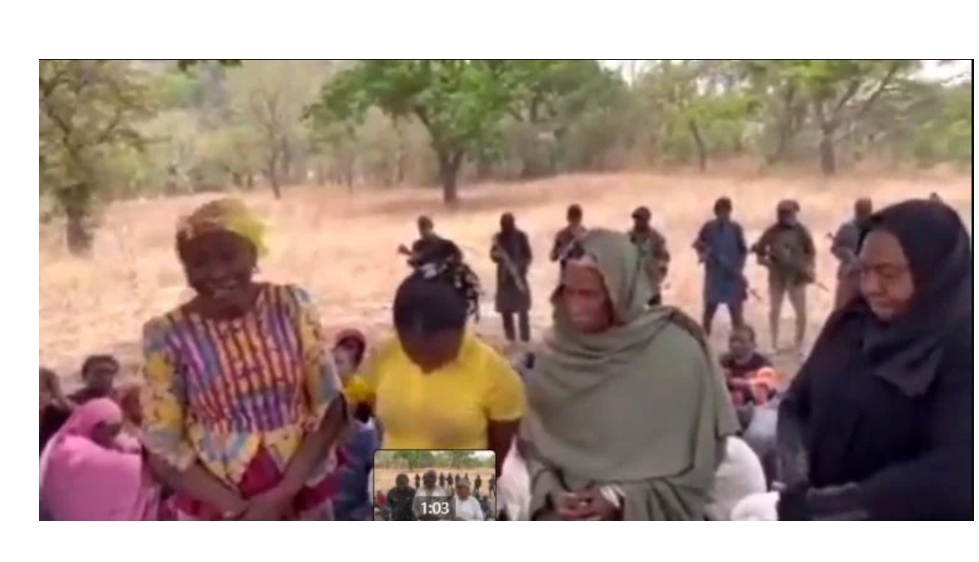Metro
Emmanuel Dennis’ AFCONtroversy Confirms Need for Clear Communication Direct from Leaders

By Joel Popoola
Nigeria’s African Cup of Nations campaign has kicked off with an impressive win against the much fancied Egyptians – despite a number of key players being missing.
Star striker Victor Oshimen was already absent with injury when defensive mainstay Leon Balogun lost his own fitness battle and withdrew from the squad. Then there’s the saga of Emmanuel Dennis.
Despite not appearing for the Super Eagles since 2019, the Watford striker has been in impressive form in his first season in the English Premier League, scoring 6 goals and creating 4 more in his last 10 games.
But his selection for Afcon – and almost immediate deselection – has caused something of diplomatic incident.
Of all the predictions made for 2022, the breakdown of diplomatic relations between Nigeria and a small town in England is one few people would have made!
When Dennis was named in Nigeria’s AFCON squad on New Year’s Eve he immediately tweeted “Proud to get a call up to represent my country… Naija boy” followed by a heart, the Nigerian flag and an eagle.
Watford in turn tweeted back “Well deserved!”
Almost immediately the Nigerian Football Association announced that Dennis would not be going to the tournament – accusing his club of “baring fangs”.1a
In response, Watford made clear that Nigerian had made an administrative error and simply not officially called the player up.
International football rules state that “Associations wishing to call up a player must notify the player in writing at least 15 days before… the player’s club shall also be informed in writing at the same time”. Watford argued that as the Nigerian football association had failed to follow correct procedure, Dennis’ call-up was invalid.
Nigerian Football Federation President Amaju Pinnick effectively admitted this was correct, blaming former manager Gerhard Rohr and stating:
“There are statutory provisions regarding inviting players… Rohr submitted the first list on the 15th of December, that was the origin of the problem”.
Interim Nigeria manager Augustine Eguavoen however stirred the pot some more, pinning the blame squarely on Watford, stating:
“Dennis said he wants to come but his club was threatening him”
Eguavoen later backtracked slightly, implying Dennis was to blame for his omission:
“It boils down to individual players, you have to fight for it”
Some reports have even suggested that Dennis himself declined the call-up, having been told he would only be a substitute.
The atmosphere of mistrust this whole situation created could well have motivated Senegal to insist that their own Watford player Ishmaila Sarr honour his (correctly administered!) call-up despite being injured since mid-November, forcing him to fly from London to Dakar and on to Cameroun… only for Senegal to acknowledge that he really was injured and to send him home again!
Whatever the truth of the matter, any social media post from Watford is now immediately submerged beneath a tidal wave of furious Nigerians.
And the whole time one person has been almost entirely absent from the conversation – Emmanuel Dennis himself. He could have settled this issue with a single tweet or Instagram story setting the record straight.
It is a lesson Nigeria’s politicians would do well to heed – clear communication, direct from the source is the only way to delivery credible and definitive information in the digital age. On social media, your name is the watermark of quality that differentiates “fake news” from “real news”.
At the digital democracy campaign I lead we’re trying to give politicians the platforms they need to communicate direct with the people they serve.
We have created a free app – Rate Your Leader – which puts verified voters in direct contact with their elected leaders, allowing them to build two-way relationships of trust and transparency and to work together to improve both our communities and our country.
Rate Your Leader lets politicians know what is happening in their areas and what matters most to the people who elect them. It’s abuse-proof technology also ensures all communication is courteous and civil – something Watford and Nigerian football fans alike could clearly benefit from!
If politicians using Rate Your Leader are responsive and authoritative, and explain the decisions they are taking clearly and satisfactorily, their voters can give them a positive rating. If people see that neighbours who have interacted with their local politicians have all rated them highly, that builds trust in our leaders. And that in turn builds trust in our system.
This is surely preferable to staying silent, and let a thousand keyboard warriors fire claim and claim at each other, creating nothing but chaos, confusion and suspicion instead?
Joel Popoola is a Nigerian tech entrepreneur, digital democracy campaigner and creator of the free Rate Your Leader app.
Metro
Kwara Gov Announces Release of 38 Abducted Worshippers

Kwara State governor, AbdulRahman AbdulRazaq, has announced the release of the 38 worshippers who were abducted by bandits from the Christ Apostolic Church, Eruku.
The victims, who were kidnapped during a recent attack on the church, regained their freedom on Sunday after days of what the governor described as intense collaboration among security agencies and government authorities.
Governor AbdulRazaq attributed the successful rescue operation to what he called President Bola Tinubu’s “hands-on approach,” saying the President personally led efforts to secure the release of the abducted persons.
He disclosed that President Tinubu cancelled his scheduled trip to the G20 meeting in South Africa to focus on security breaches in Kwara and Kebbi states, adding that the President also ordered increased security deployments to the affected areas.
The Governor extended appreciation to the Office of the National Security Adviser, the Department of State Services, the Nigerian Army, the Nigeria Intelligence Agency, and the Nigeria Police Force, which recently deployed four additional tactical teams to Kwara on the President’s directive.
He also thanked security operatives, community leaders, religious bodies, and residents of Kwara State for their support throughout the ordeal.
The Christian Association of Nigeria (CAN) has strongly condemned the violent attack on Christ Apostolic Church in Eruku town, Ekiti Local Government Area of Kwara State, describing the incident as both “heartbreaking and sad.”
The attack, which occurred during a prayer service, reportedly left some worshippers dead and an unspecified number abducted, shocking the Christian community and highlighting persistent insecurity in vulnerable regions.
Metro
The Nigerian Leadership Imperative: A Strategic Framework for National Transformation

By Tolulope A. Adegoke, PhD
“The transformation of Nigeria hinges not on a single leader, but on a reformed system that cultivates servant leadership, institutional integrity, and strategic foresight across all sectors” – Tolulope A. Adegoke, PhD
Preamble
Nigeria’s potential is constrained not by a lack of resources, but by a deficit of transformative leadership. To unlock the possibilities for its people, corporations, and the nation, a systemic overhaul is required. Dr. Adegoke presents an original, comprehensive framework designed to cultivate a new leadership paradigm across all sectors. The proposed model is built on the pillars of ethical governance, institutional integrity, strategic competency, and a culture of servant leadership, aligning Nigerian outcomes with global benchmarks for sustainable development.
1. The Core Philosophy: Redefining Leadership for Nigeria
The prevailing leadership model, often characterized by transactional and authoritarian tendencies, must be deliberately supplanted. The new ethos must be rooted in two complementary paradigms:
· Servant Leadership: Positioning leaders as enablers and stewards whose primary mandate is to empower citizens and employees, remove systemic obstacles, and foster an environment for collective flourishing.
· Transformational Leadership: Demanding leaders who can articulate and inspire commitment to a unifying national vision—one that transcends parochial interests and mobilizes human capital towards shared prosperity.
· Stakeholder Value Orientation: For the corporate sector, this necessitates a shift from narrow shareholder primacy to a broader commitment to creating value for all stakeholders—employees, customers, communities, and the environment—in alignment with international Environmental, Social, and Governance (ESG) principles.
2. A Multi-Sectoral Framework for Action
Sustainable progress requires synchronized leadership excellence across public, private, and civic spheres.
Tier 1: Public Sector & Governance Reformation
The public sector sets the foundational tone and must be the primary focus of reform.
A. Institutional Fortification:
· Meritocratic Appointments: Establish transparent, competitive recruitment processes for all significant public offices (Ministers, Agency Heads, Ambassadors), with publicly disclosed competency criteria to eliminate patronage.
· Guaranteed Autonomy: Legislate and enforce the operational and financial independence of critical institutions—the Judiciary, anti-corruption bodies (EFCC, ICPC), the electoral commission (INEC), and the Central Bank (CBN). Leadership appointments must be based on non-partisan expertise.
· Digital-First Governance: Accelerate the implementation of a robust national digital identity system and integrate all citizen-facing services onto centralized, interoperable platforms to enhance efficiency, transparency, and accountability.
B. Performance and Accountability Infrastructure:
· Mandatory KPIs for Public Officials: Link the tenure and remuneration of cabinet members, governors, and agency heads to the achievement of Specific, Measurable, Achievable, Relevant, and Time-bound (SMART) objectives, directly tied to national development goals like the Sustainable Development Goals (SDGs).
· Radical Transparency: Mandate real-time public disclosure of government budgets, contracts, and project trackers through open-data portals to empower citizen oversight and deter malfeasance.
C. Justice and Security Sector Modernization:
· Leadership Accountability: Invest in continuous, world-class training for judicial and security leadership in modern jurisprudence, human rights, and strategic management. Hold leaders directly accountable for the ethical conduct of their institutions.
Tier 2: Corporate Sector & Economic Leadership
The private sector must evolve from navigating a challenging environment to actively shaping a competitive one.
A. Mainstreaming Global Best Practices:
· Mandatory ESG Integration: Enforce comprehensive ESG reporting as a listing requirement on the Nigerian Exchange (NGX) to align with global capital markets, attract sustainable investment, and demonstrate corporate responsibility.
· Robust Corporate Governance: Strengthen the enforcement of the Nigerian Code of Corporate Governance, ensuring board compositions reflect diversity, independence, and strategic expertise for effective oversight.
B. Cultivating Ethical Innovation:
· The Ethical Tone from the Top: CEOs and board chairs must be the chief advocates for organizational integrity, implementing zero-tolerance policies for corruption and fostering a culture of compliance.
· Strategic Investment in Human Capital: Corporate strategy must prioritize significant investment in research & development (R&D) and continuous talent development to build a globally competitive Nigerian workforce.
C. Constructive Collaboration:
· Strategic Public-Private Partnerships (PPPs): Corporate leaders should engage government as proactive partners in co-designing critical infrastructure and policy frameworks.
· Industry-Wide Standards: Form influential industry consortia to drive self-regulation, establish high operational standards, and advocate for sector-wide policies that enhance national competitiveness.
Tier 3: Civic & Grassroots Leadership Activation
Unleashing the potential of the Nigerian people is the ultimate objective.
A. Educational System Transformation:
· Curriculum Modernization: Overhaul the national educational curriculum to embed critical thinking, digital literacy, ethical reasoning, and entrepreneurial skills from foundational to tertiary levels.
· Reforming the NYSC: Re-engineer the National Youth Service Corps into a premier leadership academy, focusing on practical community development, entrepreneurship, and fostering genuine national cohesion.
B. Empowering Civil Society:
· Amplifying Grassroots Voices: Create protected platforms and provide resources for community organizers, social entrepreneurs, and civic activists who are catalysts for local development.
· A Free and Responsible Media: Support a robust, independent media sector that acts as a societal watchdog, upholding the highest standards of investigative journalism and ethical reporting.
3. Foundational Enablers for Systemic Change
These competencies are essential for the framework’s success across all sectors:
· Evidence-Based Decision-Making: Transition all strategic planning from intuition to rigorous data analytics.
· Strategic Foresight: Institutionalize long-term horizon scanning and scenario planning within government and corporate strategy units.
· Emotional Intelligence & Inclusive Dialogue: Cultivate leadership capable of managing complex social dynamics, fostering inclusivity, and healing national fault lines.
4. Implementation Pathway & Metrics for Success
Phase 1: Catalyzation (Years 0-2)
· Launch a high-impact national leadership and ethics initiative.
· Enact and implement robust electoral reforms to guarantee credible elections.
· Legislate mandatory ESG reporting for all NGX-listed firms.
Phase 2: Institutionalization (Years 3-5)
· Achieve full digitization of core government services and financial management systems.
· Establish a world-class, independent National Institute of Strategic Leadership.
· Fully operationalize the performance-based KPI system for all federal leadership positions.
Phase 3: Global Integration (Years 6-10+)
· Nigeria emerges as a regional leader in governance and corporate integrity.
· Demonstrate measurable, sharp improvements in global indices: Transparency International’s Corruption Perception Index, the World Bank’s Ease of Doing Business, and the UN Human Development Index.
Conclusion: The Call to Build a Legacy
The gap between Nigeria’s potential and its reality can only be bridged by a deliberate and courageous commitment to leadership transformation. This framework provides a structured, actionable pathway. It demands a collective break from the past and an unwavering dedication to a future where Nigerian leadership is synonymous with service, integrity, and excellence. The responsibility to choose this path rests with the current generation of leaders across every sphere of national life.
Dr. Tolulope A. Adegoke, AMBP-UN is a Doctor of Philosophy (PhD) in History and International Studies, Fellow Certified Management Consultant & Specialist, Fellow Certified Human Resource Management Professional, a Recipient of the Nigerian Role Models Award (2024), and a Distinguished Ambassador For World Peace (AMBP-UN). He has also gained inclusion in the prestigious compendium, “Nigeria @65: Leaders of Distinction.”
Metro
WAEC Confirms 2027 for Commencement of Full CBT Exam

The West African Examinations Council (WAEC) has shifted the commencement of its Senior School Certificate Examinations (SSCE) in full computer-based (CBT) mode to 2027, rather than 2026, as previously directed by the Federal government.
The 2026 May/June WASSCE will still be a test-run pilot of the full-CBT format, with students having the option of sitting for their papers in either CBT or paper-and-pen format.
The Chairman of Nigeria National Committee (NNC) of WAEC, who is the Federal Government’s Nominee, Hajia Binta Abdulkadir, gave the hint on Thursday at the opening session of this year’s Annual Meeting of NNC (63rd edition) in Umuahia, Abia State.
NNC is the highest decision-making organ of WAEC for Nigeria, and the committee comprises virtually all the education stakeholders in the country. Members meet once annually on a rotational basis among the 36 states of the federation and the Federal Capital Territory.
Abdulkadir, who doubles as Director of Basic Education, Federal Ministry of Education, stated that NEC WAEC is aware of the concerns that the federal government directives to the examination bodies to migrate to full-CBT by 2026 have been raised among the stakeholders.
“So, I want to assure that no candidate sitting the 2026 WASSCE will be disenfranchised in any form,” she stressed.
Hajia Abdukadir explained some of the recent efforts made by WAEC towards smooth migration to full-CBT mode, including the training of senior school students on the pilot test of the use of tablets and digital style in responding to Essay Questions on a computer, among others.
Speaking on the recent review of the Basic and Secondary School Curricula, she assured that no candidate would also be restricted from registering subjects from other subject groups or distinct elective fields.
She said: “Science students are not barred from taking Economics as an elective to complete their subject selection even as the period for Continuous Assessment Scores (CASS) uploading has been extended for accurate capturing of CASS for candidates, who must take new subjects in line with the Federal government’s approved list for the WASSCE for School Candidates, 2026.”






